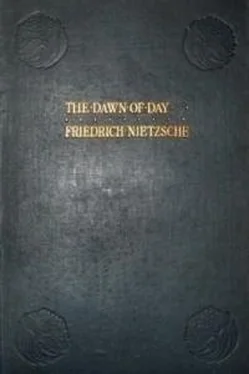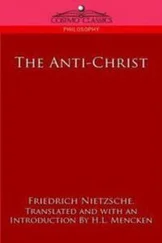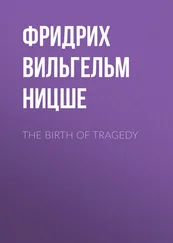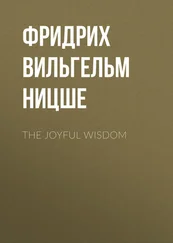Thirdly, we have the philosophers, men who unite religious and artistic qualities, combined, however, with a third element, namely, dialectics and the love of controversy. They are the authors of evil in the same sense as the religious men and artists, in addition to which they have wearied many of their fellow–men with their passion for dialectics, though their number has always been very small. Fourthly, the thinkers and scientific workers. They but rarely strove after effects, and contented themselves with silently sticking to their own groove. Thus they brought about little envy and discomfort, and often, as objects of mockery and derision, they served, without wishing to do so, to make life easier for the men of the vita activa . Lastly, science ended by becoming of much advantage to all; and if, on account of this utility , many of the men who were destined for the vita activa are now slowly making their way along the road to science in the sweat of their brow, and not without brain–racking and maledictions, this is not the fault of the crowd of thinkers and scientific workers: it is “self–wrought pain.” [3] M. Henri Albert points out that this refers to a line of Paul Gerhardt’s well–known song: “Befiel du deine Wege.” TR.
42.
ORIGIN OF THE VITA CONTEMPLATIVA .—During barbarous ages, when pessimistic judgments held sway over men and the world, the individual, in the consciousness of his full power, always endeavoured to act in conformity with such judgments, that is to say, he put his ideas into action by means of hunting, robbery, surprise attacks, brutality, and murder: including the weaker forms of such acts, as far as they are tolerated within the community. When his strength declines, however, and he feels tired, ill, melancholy, or satiated—consequently becoming temporarily void of wishes or desires—he is a relatively better man, that is to say, less dangerous; and his pessimistic ideas will now discharge themselves only in words and reflections—upon his companions, for example, or his wife, his life, his gods,—his judgments will be evil ones. In this frame of mind he develops into a thinker and prophet, or he adds to his superstitions and invents new observances, or mocks his enemies. Whatever he may devise, however, all the productions of his brain will necessarily reflect his frame of mind, such as the increase of fear and weariness, and the lower value he attributes to action and enjoyment. The substance of these productions must correspond to the substance of these poetic, thoughtful, and priestly moods; the evil judgment must be supreme.
In later years, all those who acted continuously as this man did in those special circumstances— i.e. those who gave out pessimistic judgments, and lived a melancholy life, poor in action—were called poets, thinkers, priests, or “medicine–men.” The general body of men would have liked to disregard such people, because they were not active enough, and to turn them out of the community; but there was a certain risk in doing so: these inactive men had found out and were following the tracks of superstition and divine power, and no one doubted that they had unknown means of power at their disposal. This was the value which was set upon the ancient race of contemplative natures —despised as they were in just the same degree as they were not dreaded! In such a masked form, in such an ambiguous aspect, with an evil heart and often with a troubled head, did Contemplation make its first appearance on earth: both weak and terrible at the same time, despised in secret, and covered in public with every mark of superstitious veneration. Here, as always, we must say: pudenda origo !
43.
HOW MANY FORCES MUST NOW BE UNITED IN A THINKER.—To rise superior to considerations of the senses, to raise one’s self to abstract contemplations: this is what was formerly regarded as elevation ; but now it is not practicable for us to share the same feelings. Luxuriating in the most shadowy images of words and things; playing with those invisible, inaudible, imperceptible beings, was considered as existence in another and higher world, a world that sprang from the deep contempt felt for the world which was perceptible to the senses, this seductive and wicked world of ours. “These abstracta no longer mislead us, but they may lead us”—with such words men soared aloft. It was not the substance of these intellectual sports, but the sports themselves, which was looked upon as “the higher thing” in the primeval ages of science. Hence we have Plato’s admiration for dialectics, and his enthusiastic belief in the necessary relationship of dialectics to the good man who has risen superior to the considerations of his senses. It was not only knowledge that was discovered little by little, but also the different means of acquiring it, the conditions and operations which precede knowledge in man. And it always seemed as if the newly–discovered operation or the newly–experienced condition were not a means of acquiring knowledge, but was even the substance, goal, and sum–total of everything that was worth knowing. What does the thinker require?—imagination, inspiration, abstraction, spirituality, invention, presentiment, induction, dialectics, deduction, criticism, ability to collect materials, an impersonal mode of thinking, contemplation, comprehensiveness, and lastly, but not least, justice, and love for everything that exists—but each one of these means was at one time considered, in the history of the vita contemplativa , as a goal and final purpose, and they all secured for their inventors that perfect happiness which fills the human soul when its final purpose dawns upon it.
44.
ORIGIN AND MEANING.—Why does this thought come into my mind again and again, always in more and more vivid colours?—that, in former times, investigators, in the course of their search for the origin of things, always thought that they found something which would be of the highest importance for all kinds of action and judgment: yea, that they even invariably postulated that the salvation of mankind depended upon insight into the origin of things —whereas now, on the other hand, the more we examine into origins, the less do they concern our interests: on the contrary, all the valuations and interestedness which we have placed upon things begin to lose their meaning, the more we retrogress where knowledge is concerned and approach the things themselves. The origin becomes of less significance in proportion as we acquire insight into it ; whilst things nearest to ourselves, around and within us, gradually begin to manifest their wealth of colours, beauties, enigmas, and diversity of meaning, of which earlier humanity never dreamed. In former ages thinkers used to move furiously about, like wild animals in cages, steadily glaring at the bars which hemmed them in, and at times springing up against them in a vain endeavour to break through them: and happy indeed was he who could look through a gap to the outer world and could fancy that he saw something of what lay beyond and afar off.
45.
A TRAGIC TERMINATION TO KNOWLEDGE.—Of all the means of exaltation, human sacrifices have at times done most to elevate man. And perhaps the one powerful thought—the idea of self–sacrificing humanity —might be made to prevail over every other aspiration, and thus to prove the victor over even the most victorious. But to whom should the sacrifice be made? We may already swear that, if ever the constellation of such an idea appeared on the horizon, the knowledge of truth would remain the single but enormous object with which a sacrifice of such a nature would be commensurate—because no sacrifice is too great for it. In the meantime the problem has never been expounded as to how far humanity, considered as a whole, could take steps to encourage the advancement of knowledge; and even less as to what thirst for knowledge could impel humanity to the point of sacrificing itself with the light of an anticipated wisdom in its eyes. When, perhaps, with a view to the advancement of knowledge, we are able to enter into communication with the inhabitants of other stars, and when, during thousands of years, wisdom will have been carried from star to star, the enthusiasm of knowledge may rise to such a dizzy height!
Читать дальше











